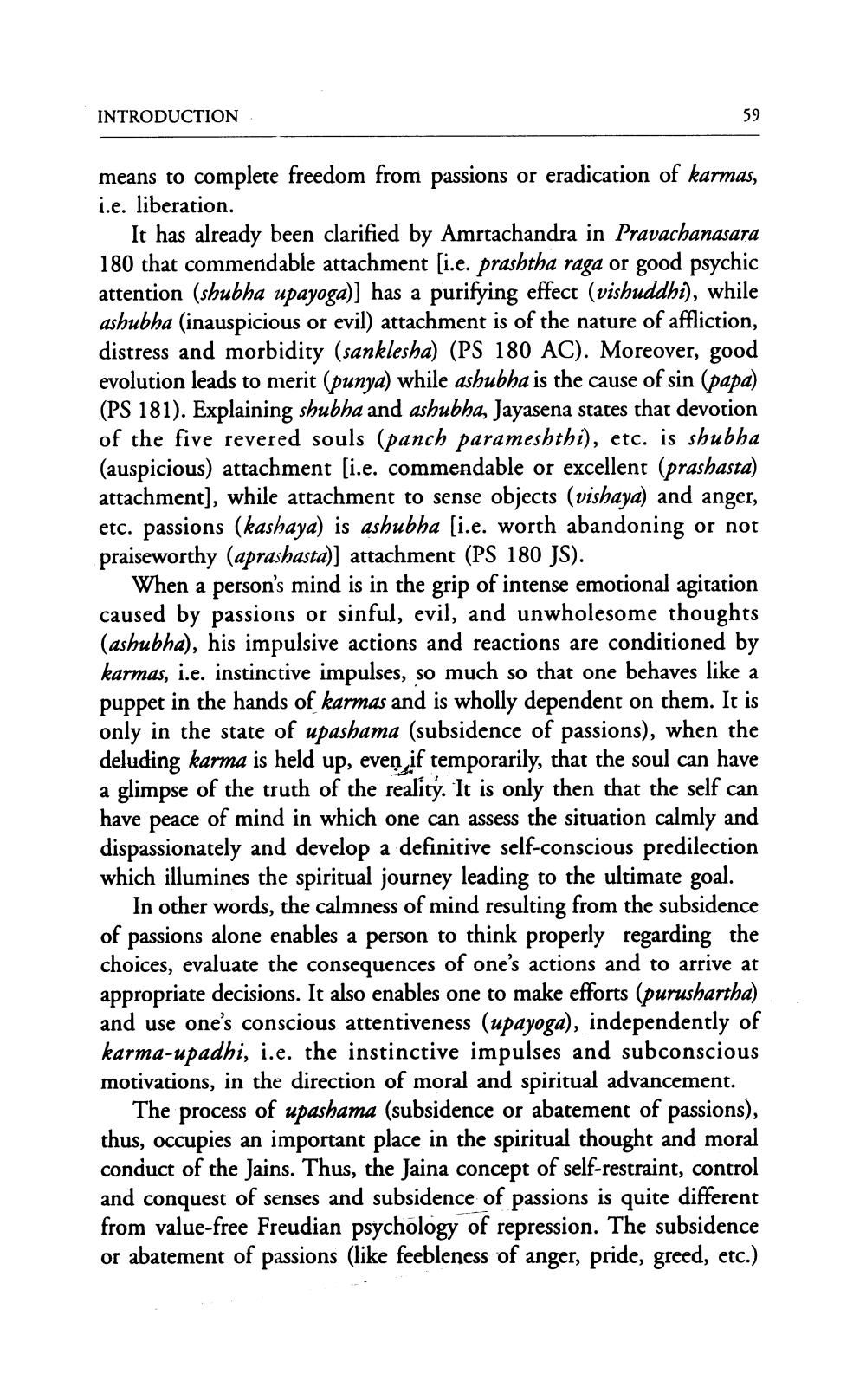________________
INTRODUCTION
means to complete freedom from passions or eradication of karmas, i.e. liberation.
It has already been clarified by Amrtachandra in Pravachanasara 180 that commendable attachment (i.e. prashtha raga or good psychic attention (shubha upayoga)] has a purifying effect (vishuddhi), while ashubha (inauspicious or evil) attachment is of the nature of affliction, distress and morbidity (sanklesha) (PS 180 AC). Moreover, good evolution leads to merit (punya) while ashubha is the cause of sin (papa) (PS 181). Explaining shubha and ashubha, Jayasena states that devotion of the five revered souls (panch parameshthi), etc. is shubha (auspicious) attachment [i.e. commendable or excellent (prashasta) attachment], while attachment to sense objects (vishaya) and anger, etc. passions (kashaya) is ashubha (i.e. worth abandoning or not praiseworthy (aprashasta)] attachment (PS 180 JS).
When a person's mind is in the grip of intense emotional agitation caused by passions or sinful, evil, and unwholesome thoughts (ashubha), his impulsive actions and reactions are conditioned by karmas, i.e. instinctive impulses, so much so that one behaves like a puppet in the hands of karmas and is wholly dependent on them. It is only in the state of upashama (subsidence of passions), when the deluding karma is held up, even if temporarily, that the soul can have a glimpse of the truth of the reality. It is only then that the self can have peace of mind in which one can assess the situation calmly and dispassionately and develop a definitive self-conscious predilection which illumines the spiritual journey leading to the ultimate goal.
In other words, the calmness of mind resulting from the subsidence of passions alone enables a person to think properly regarding the choices, evaluate the consequences of one's actions and to arrive at appropriate decisions. It also enables one to make efforts (purushartha) and use one's conscious attentiveness (upayoga), independently of karma-upadhi, i.e. the instinctive impulses and subconscious motivations, in the direction of moral and spiritual advancement.
The process of upashama (subsidence or abatement of passions), thus, occupies an important place in the spiritual thought and moral conduct of the Jains. Thus, the Jaina concept of self-restraint, control and conquest of senses and subsidence of passions is quite different from value-free Freudian psychology of repression. The subsidence or abatement of passions (like feebleness of anger, pride, greed, etc.)




